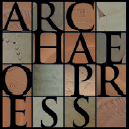Papers from the RCRF 2022 Athens conference explore Roman pottery manufacturing and trade in the Eastern Mediterranean and beyond. Featuring 60 articles, it examines typologies, production, trade, and cultural transformations, offering new insights into ancient economies and societies from the Hellenistic to Late Antique periods.
We are pleased to present a new volume of the RCRF Acta, resulting from the conference held in Athens in September 2022. This event was organized by Platon Petridis and Charikleia Diamanti, with the collaboration of Chrysanti Sakellakou. The organization received institutional support from the Department of History and Archaeology of the School of Philosophy of the National and Kapodistrian University of Athens, the Ephorate of Antiquities of Cyclades of the Ministry of Culture of the Hellenic Republic, and the Byzantine and Christian Museum of Athens.
The main theme was “Linking Pots: Manufacturing and selling Roman pottery in the Eastern Mediterranean,” but the presentations went far beyond this area and involved the vast regions that were an integral part of the Roman Empire. As usual, the focus of Rei Cretariae Romanae Fautores, founded in 1957 by Howard Comfort and Elisabeth Ettlinger, is the advancement of understanding about trade and economy, society, and culture during Antiquity through the study of the diverse categories of Roman pottery. In this international learned society, members preserve the founding spirit of the association, recognizing the crucial role that ceramics studies play in understanding the societies and economies of the ancient Roman world across its various regions and provinces.
The 60 articles gathered in this volume shed new light on traditional fields of Roman pottery studies such as typological series, chronology, local and regional production, and import trends (including fine ware, common ware, and amphorae), as well as manufacture processes. Additionally, methodological approaches and archaeometry were not neglected.
Collectively, the volume presents a variety of perspectives where researchers are invited, through pottery, to discuss and analyse economic, social, and cultural transformations, thus contributing to the advancement of historical knowledge of the contexts in question, from the Hellenistic period to Late Antiquity.






 Add to wishlist
Add to wishlist
